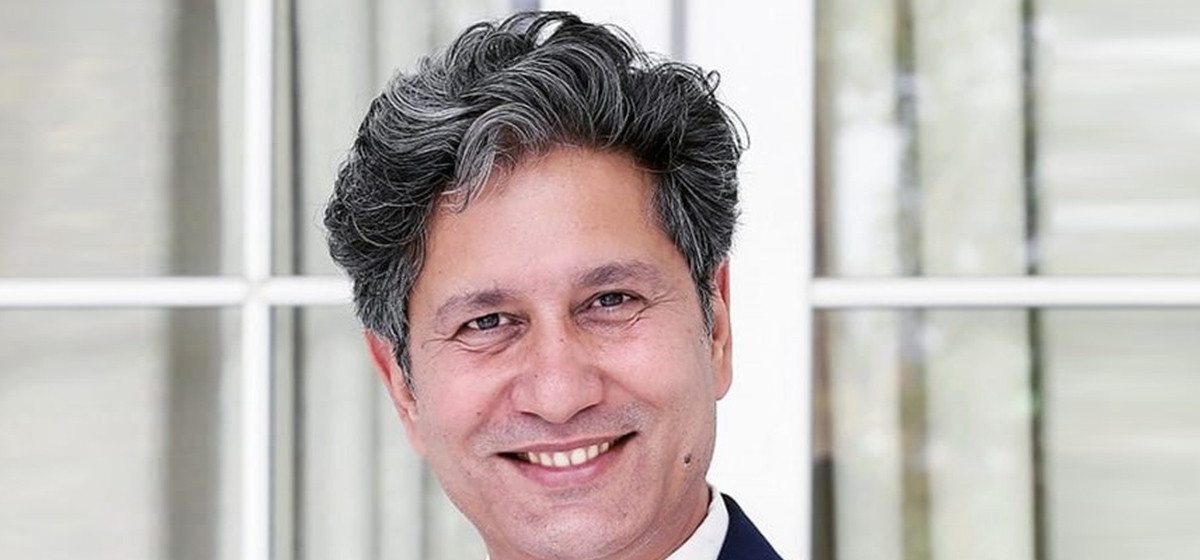KATHMANDU, June 5: While expressing concern over the delay in addressing transitional justice issues, Australian ambassador to Nepal Pete Budd said that the leaders directly or indirectly involved in rights violations could face arrest in any country including in Australia.
In an interaction with a group of journalists at his office on Tuesday, Ambassador Budd expressed concern at dilly-dallying by political actors in Nepal over addressing the issues of serious human rights violations during the decade-long Maoist insurrection. He suggested Nepali political leaders resolve the issues of transitional justice at the earliest to avoid the involvement of extra-territorial elements.
Ambassador Budd’s remarks come at a time when there has not been any significant progress in addressing transitional justice issues even though the peace process began back in 2006. Two transitional justice mechanisms – Truth and Reconciliation Commission and Commission of Investigation on Enforced Disappeared Persons – have now been left defunct as major political actors differ on how to address the serious human rights violations perpetrated during the decade-long Maoist armed conflict.
The envoy argued that political leaders involved directly or indirectly in serious rights violations may face arrest in any country under the universal jurisdiction of UN Conventions if the victims chose to independently file complaints against them over such crimes.
Issues seen in judiciary should be resolved through dialogue: N...

It may be recalled that former prime minister and Chairman of the ruling Nepal Communist Party (NCP) Pushpa Kamal Dahal had to put off a trip to Australia in June 2016 at the eleventh hour. There was speculation that Dahal decided to cancel his trip out of fear of possible arrest there.
Those accused of war crimes and crimes against humanity as per the UN Conventions may face arrest under universal jurisdiction in countries which are state parties to the conventions on war crimes and crimes against humanity.
Asked if he had any idea why Dahal cancelled his visit to Australia, Ambassador Budd said he was unaware why he chose to cancel the trip at the eleventh hour. “I do not know why he chose to cancel the trip. But transitional justice is very important for Nepal’s long-term stability. We want to see this process advance further,” he said. Nepal has to address the issues of transitional justice even for showing its human rights credentials.
Ambassador Budd warned that failure to address these issues on time may only invite unwarranted involvement of extra-territorial elements in the process.
Budd also expressed concern over the government’s move to introduce changes in legislation governing the National Human Rights Commission (NHRC). He argued that the proposed changes in the legislation threaten to undermine the role of the NHRC as an autonomous human rights watchdog in Nepal.
He likewise expressed concern over the government’s move to introduce new media legislation calculated to curb press freedom and freedom of expression.
Australia is one of the key partners in the Indo-Pacific strategy of the US—a strategy widely seen as an attempt to contain China’s rise. As China has started responding to the US-led Indo-Pacific strategy through its overarching Belt and Road Initiative (BRI) projects, there is growing concern here that this could leave Nepal trapped between these two competing strategic overtures of the major powers.
While stating that China had a constructive role to play in infrastructure development in the region, Ambassador Budd said those infrastructures, however, needed to be sustainable for the host country. Referring to Nepal’s plan to build a cross-country railway with China under BRI, he suggested Nepal think about sustainability and the possible dividends of a project that requires multi-billion dollars in investment.
While arguing that Nepal could equally benefit from the Indo-Pacific strategy initiated by the US, Ambassador Budd said that Nepal may have its development priorities beyond BRI. “What is going to be the dividend for Nepal? If you build the railway, do you have any products to export to China?” he asked. “We in Australia think of returns before making such investments.”
On the occasion, Ambassador Budd also highlighted Australian cooperation in three priority sectors, namely education, livelihood and sub-national governance support, in Nepal. He complained that Nepal’s decision to include agriculture and fisheries in the negative list in the Foreign Investment and Technology Transfer Act (FITTA) had discouraged prospective Australian investors in Nepal. “There is a significant protectionist bent in these areas. This will be counterproductive also for Nepal,” he said.







































